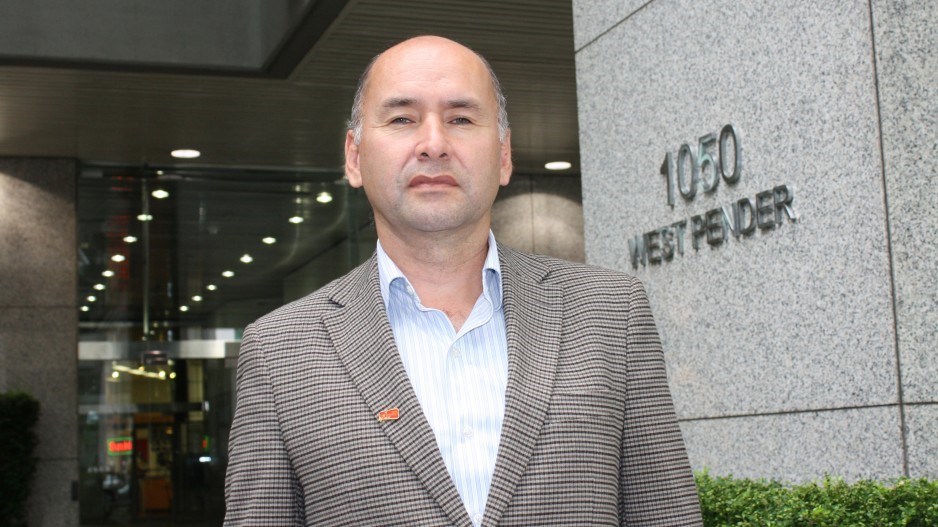The B.C. government's Declaration on the Rights of Indigenous Peoples Act (DRIPA) is about to face its first legal challenge.
The Pender Harbour and Area Residents Association (PHARA) is going to court to seek a ruling that, one way or another, DRIPA is unconstitutional.
According to a petition filed today in B.C. Supreme Court, it is unconstitutional because it conflicts with Section 35 of the Canadian Constitution, and the B.C. government exceeded its authority when it passed an order in council granting the Shíshálh (Sechelt) First Nation co-management powers over docks.
It seeks a declaration from the court that DRIPA is “unconstitutional and inconsistent with section 35 of the Constitution Act, 1982 and is, to the extent of such inconsistency, of no force and effect.”
Alternatively, it seeks a declaration that DRIPA is unconstitutional because it “violates the democratic rights guaranteed by section 3 of the Charter of Rights and Freedoms … by authorizing the transference of governance powers to an entity that is not responsible to the Legislative Assembly or the electorate of British Columbia.”
It also seeks an order preventing the Lieutenant Governor in Council or any minister of the Crown from entering into any agreements pursuant to Section 7 of DRIPA.
The PHARA has been fighting the B.C. government over its decision to invest the Shíshálh with co-management powers over dock tenures on the Sunshine Coast. Joint decision-making is provided for under Section 7 of DRIPA.
The shíshálh swiya Dock Management Plan covers an area from Lang Bay to Roberts Creek on the Sunshine Coast. It has implications for all private dock owners and boathouse owners.
DRIPA is the B.C. government’s enabling legislation for the United Nations Declaration on the Rights of Indigenous Peoples (UNDRIP).
"We strongly support reconciliation, but people have become divided by the DRIPA, so we look forward to the court ruling and giving some certainty to everyone," PHARA president Peter Robson said in a press release. "While court is the last place we want to be, we feel this step is necessary and we are committed to it."
The legal challenge is getting the support of Ellis Ross – the current MLA for Skeena and former Haisla First Nation chief who is now running federally for the Conservative Party.
“I have spent my career studying section 35 constitutionally protected Aboriginal rights and used them to help my region develop and prosper,” he says in a PHARA press release. “DRIPA in its current form is complicating things and causing division. I look forward to what the court has to say on this important legal challenge.”
Tom Isaac, author of the book Aboriginal Law, said the case raises important questions over the limits of provincial lawmakers with respect to aboriginal rights.
“This case tackles the fundamental question of whether a single Canadian province can develop its own Indigenous rights laws, and whether that can be squared with the Indigenous rights framework already found in Canada's Constitution and related case law,” Isaac said.
“These are serious questions that until now have not received the attention they deserve. And because this affects how Indigenous rights are balanced with other people's rights, it is an important case for every British Columbian and will be followed very closely by the legal community.”
The B.C. government has been going through a process of harmonizing provincial laws with DRIPA, which has caused some concerns for resource industries with respect to who has ultimate jurisdiction over land and resources.
Concerns arose in January, for example, when the B.C. government attempted changes to the Land Act to allow for consent-based agreements with First Nations.
The government backed off from the Land Act changes after it got push-back from landowners and resource companies, which expressed concerns over private property rights and access to Crown land.
“British Columbia's unusual 'go it alone' approach to pursuing reconciliation with Indigenous peoples carries risk for many business operators as well as for the overall investment climate,” Jock Finlayson, chief economist for the Independent Contractors and Businesses Association (ICBA), said in
PHARA's press release.
“Among other things, the government's actions and policy proposals presented over the last year or so are likely to foster greater uncertainty for the private sector. British Columbians need to work together to build a fair, prosperous economy that welcomes investment and encourages productive entrepreneurship.”


